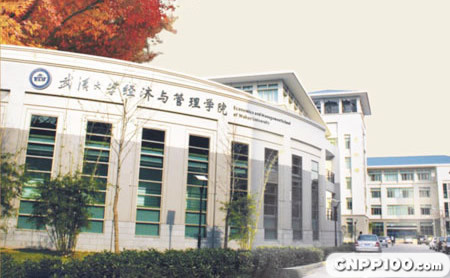
The School of Economics and Management of Wuhan University covers two major categories: economics and management, and is a business school with leading comprehensive strength and great social influence
The School of Economics and Management of Wuhan University is the largest school in the school, and it is also one of the colleges with leading comprehensive strength and great social influence.
The college has a long history of running a school and a profound academic accumulation. Its predecessor can be traced back to the business gate established in 1893 when Zhang Zhidong, the governor of Huguang, founded the Ziqiang School in the late Qing Dynasty, and its physical foundation originated from the National Wuchang Commercial College established in 1916. In 1928, the Department of Economics was established at National Wuhan University. In 1981, the Faculty of Economics and the Faculty of Economics and Management were separated, and in 1999 the Faculty of Economics, the Faculty of Management and the Faculty of Tourism were merged to form the Faculty of Business. In 2001, the former Business School of Wuhan University, the former School of Economics and Management of Wuhan University of Water Conservancy and Electric Power and the former Department of Economics Management and Marketing of Wuhan University of Surveying and Mapping merged to form the Business School of the new Wuhan University, which was renamed the School of Economics and Management in 2005.
The college has a complete range of disciplines and outstanding professional advantages. The disciplines cover two major categories of economics and management, with four first-level disciplines: theoretical economics, applied economics, business administration, management science and engineering, and all four first-level disciplines have the right to confer doctoral degrees in first-level disciplines and have postdoctoral research stations. The first-level discipline of theoretical economics and the second-level discipline of finance are national key disciplines. All disciplines are advantageous or key disciplines in Hubei Province. The Economic Development Research Center is one of the 100 key research bases of the Ministry of Education's humanities and social science research institutes.
The faculty of the college is strong and the echelon structure is reasonable. At present, there are 298 full-time teachers, 100 professors, 107 associate professors and 38 assistant professors, including 1 senior professor of humanities and social sciences of Wuhan University, 4 Changjiang Scholars, 1 winner of the National Fund for Distinguished Young Scholars, 1 winner of the National Thousand Talents Program, 3 candidates for the Millions of Talents Project, 3 cross-century outstanding talents, and 20 new century outstanding talents. Eighty-nine per cent of full-time teachers have doctoral degrees, and 56 per cent are under the age of 45. The construction of the faculty of the college is moving towards the goal of reasonable age, optimized structure and continuous improvement of the overall level.
The college has a sound organizational structure and good conditions for running a school. At present, there are 10 departments, 2 entity research institutes and a number of academic research centers (institutes), and 7 administrative offices. The library branch of the college has a collection of more than 160,000 books, the Experimental Teaching Center of Economics and Management is a national experimental teaching demonstration center, and the Economic Review is one of the core journals of economics Chinese six colleges and universities funded by the National Social Science Fund. The college is one of the 13 basic training bases for economics in China, and has passed the AMBA and EQUIS international certifications, and is in the process of AACSB international certification. The 30,000-square-meter office building provides modern conditions for the teaching and scientific research of the college.
The college has a large scale and a large number of outstanding talents. At present, there are more than 12,000 students, including more than 3,800 full-time undergraduates, more than 3,000 graduate students, including more than 270 foreign students, more than 250 students from Hong Kong, Macao and Taiwan, and more than 5,000 double degree students. The college has always been committed to learning and learning, inheriting culture, cultivating elites, and applying it to the world, and has always put the quality of talent training in the first place. Nearly 40% of students go abroad for further study every year, and a large number of outstanding talents in politics, academia and business have emerged.
The college has always adhered to the school-running philosophy of "respecting scholars, advocating academics, cultivating elites, and pursuing excellence", and in accordance with the strategy of "establishing a college for teaching, strengthening the institute for scientific research, running the institute by the people, reforming and revitalizing the institute, governing the institute by system, and opening up the institute" and the policy of "attaching equal importance to management disciplines and economic disciplines, paying equal attention to applied research and theoretical research, paying equal attention to teaching and scientific research, and paying equal attention to quality and efficiency", the college strives to achieve the goal of gathering first-class teachers, building first-class disciplines, cultivating first-class talents, producing first-class results, and creating first-class management, so as to build a "leading domestic and internationally renowned". "A high-level research institute and strive for it!













